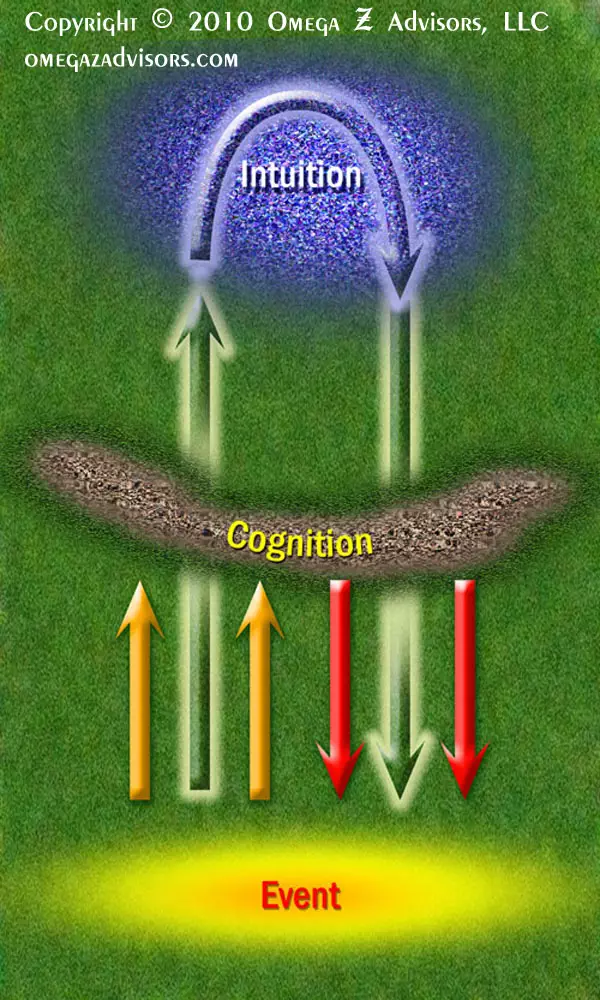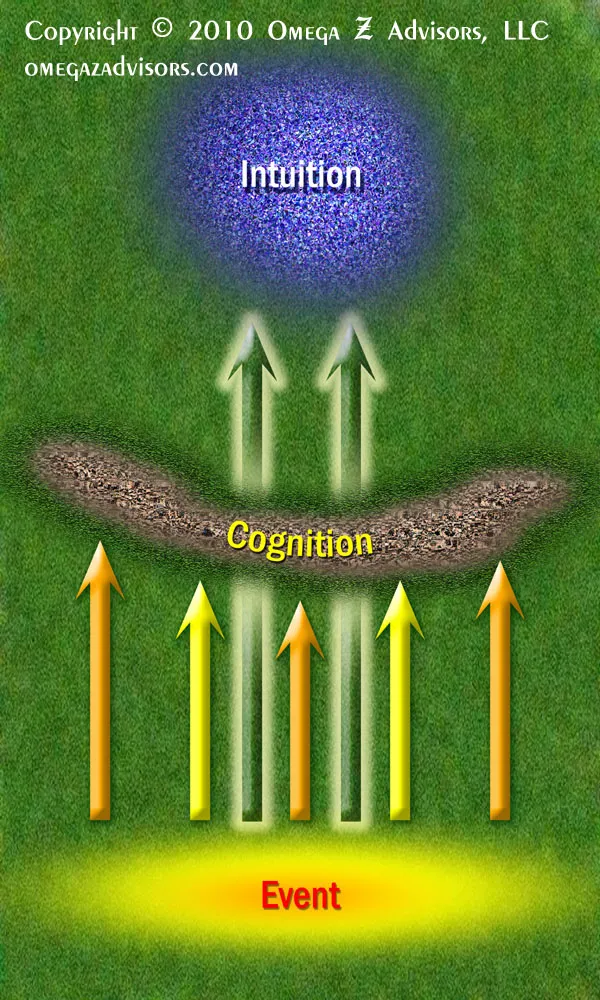How Intuition Influences Thought Processes All The Time
Intuition influences thought processes all the time. Many times people just don’t know it. As behavioral economics and other social-related sciences are discovering, people aren’t rational decision makers. This holds true even when they think they are.
That’s because intuition works in tandem with more rational, thinking functions. As we saw with an earlier post, it arrives first. It then works with cognition. Near the end, it leaves. Cognition finishes the thought. It comes up with a rationale that fits.
Map Analogy And Examples
In this sense, intuition influences thought processes in the same way a compass gives direction. The compass does not tell us how to get there. A map or other tools do that. Tying up the analogy, cognition plays this role in thought processes.
Take a restaurant’s ambiance. Rationally, it has nothing to do with the food. Yet, if it’s unclean, disorderly and ugly it will dampen thoughts about the food.
Why do children ask their moms and dads, “Are you in a good mood?” They know their parents’ moods affect their decisions. Intuition does this. It’s rooted in emotions.
Illustrations How Intuition Influences Thought Processes

Figure 2: Intuition influences thought processes by giving direction to the more cognitive and conscious aspects of those processes.
As Figure 1 shows, for any event there are conscious (solid lines) and unconscious aspects (transparent lines). Our cognition can’t grasp consciously all an event has to offer. It’s like light. Some we see. Some we don’t such as heat, infrared, ultraviolet, radiation and others.
Still, even if we can’t see the latter, it affects us. The same holds true for events. Even if we can’t consciously grasp their unconscious aspects, they still affect thought processes. In Figure 2, intuition begins the thought process. It gives direction to the more cognitive and conscious aspects of that process.
How Intuition’s Impact Shows Up In Thoughts
The most visible signs of intuition’s impact on thoughts appear in the form of guessing and the direction any logic or reasoning takes to interpret or react to an event. Again, think of the compass. That’s because almost all decisions come down to a personal preference.
For instance, the excitement of a riskier option often goes up against the security of tried and true one. Both trigger different emotions. These emotions via intuition compel cognition to come up with a rationale that supports the preferred option.
Therefore, in the restaurant analogy above, the ugly ambiance will cause the food to taste bad. That’s because the negative emotions will cause intuition to affect cognition in a negative way. That will show up as a rationale saying why the food is bad. Yet, that rationale won’t say anything about the ambiance, only the food. In reality though, the ambiance did play a role.




Pingback : Change Taste without Changing Anything about the Food | Mike Lehr's Blog